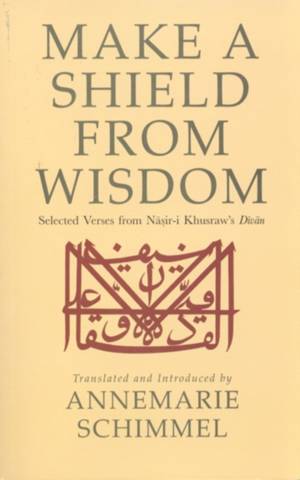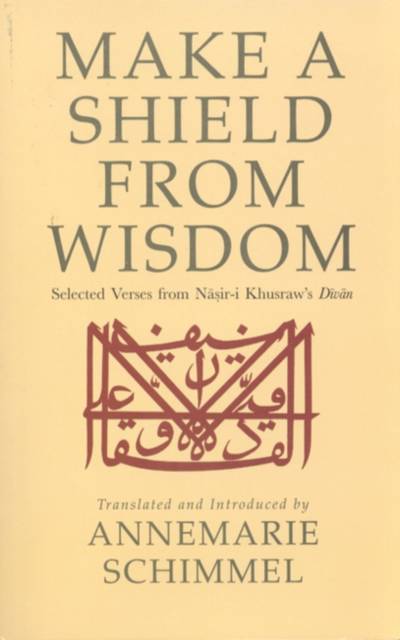
Bedankt voor het vertrouwen het afgelopen jaar! Om jou te bedanken bieden we GRATIS verzending (in België) aan op alles gedurende de hele maand januari.
- Afhalen na 1 uur in een winkel met voorraad
- In januari gratis thuislevering in België
- Ruim aanbod met 7 miljoen producten
Bedankt voor het vertrouwen het afgelopen jaar! Om jou te bedanken bieden we GRATIS verzending (in België) aan op alles gedurende de hele maand januari.
- Afhalen na 1 uur in een winkel met voorraad
- In januari gratis thuislevering in België
- Ruim aanbod met 7 miljoen producten
Zoeken
Make a Shield from Wisdom
Selected Verses from Nasir-i Khusraw's Divan
Nasir Khusraw
Paperback | Engels
€ 44,45
+ 88 punten
Omschrijving
Born in 1004, Nasir-i Khusraw was the major poet and philosopher of the early Ismailiyya. The outward political and religious events of the first half of the 11th century were the canvas on which Nasir-i Khusraw's poetry and prose developed. It is a poetry that teaches the importance of wisdom, of reason, of the right word and the right faith. Nasir-i edifice of religio-philosophical thought with its constant emphasis on the true faith and, as importantly, on reason and its role. Unique and important for our understanding of the times in which it was written Nasir-i Khusraw's ideas and expressions appeal strongly to readers of today. . The interest in Nasir-i Khusraw's poetry lies first in its contents and, from the purely formal viewpoint, in its consummate artistry. Through the poet's descriptions of gardens and stars, and his technical skill in the use of language and metre, the book offers an insight in to the poet's learning in all areas of Islamic and scientific topics. Above all, the poet successfully combines poetical skill with a deep religious conviction.
The work of the Persian author in both its philosophical and poetical aspects has been known in the West for more than a century, but until now a full evaluation of Nasir-i Khusraw's poetry - his Divan - has not been attempted. This volume is intended as a step toward a better understanding of the poet's thought. In it, the noted Islamic scholar Annemarie Schimmel presents her translations of Nasir-i Khusraw's qasidas along with a detailed study of the poet and his work.
The work of the Persian author in both its philosophical and poetical aspects has been known in the West for more than a century, but until now a full evaluation of Nasir-i Khusraw's poetry - his Divan - has not been attempted. This volume is intended as a step toward a better understanding of the poet's thought. In it, the noted Islamic scholar Annemarie Schimmel presents her translations of Nasir-i Khusraw's qasidas along with a detailed study of the poet and his work.
Specificaties
Betrokkenen
- Auteur(s):
- Vertaler(s):
- Uitgeverij:
Inhoud
- Aantal bladzijden:
- 112
- Taal:
- Engels
Eigenschappen
- Productcode (EAN):
- 9781860647253
- Verschijningsdatum:
- 23/06/2001
- Uitvoering:
- Paperback
- Formaat:
- Trade paperback (VS)
- Afmetingen:
- 140 mm x 215 mm
- Gewicht:
- 172 g

Alleen bij Standaard Boekhandel
+ 88 punten op je klantenkaart van Standaard Boekhandel
Beoordelingen
We publiceren alleen reviews die voldoen aan de voorwaarden voor reviews. Bekijk onze voorwaarden voor reviews.









